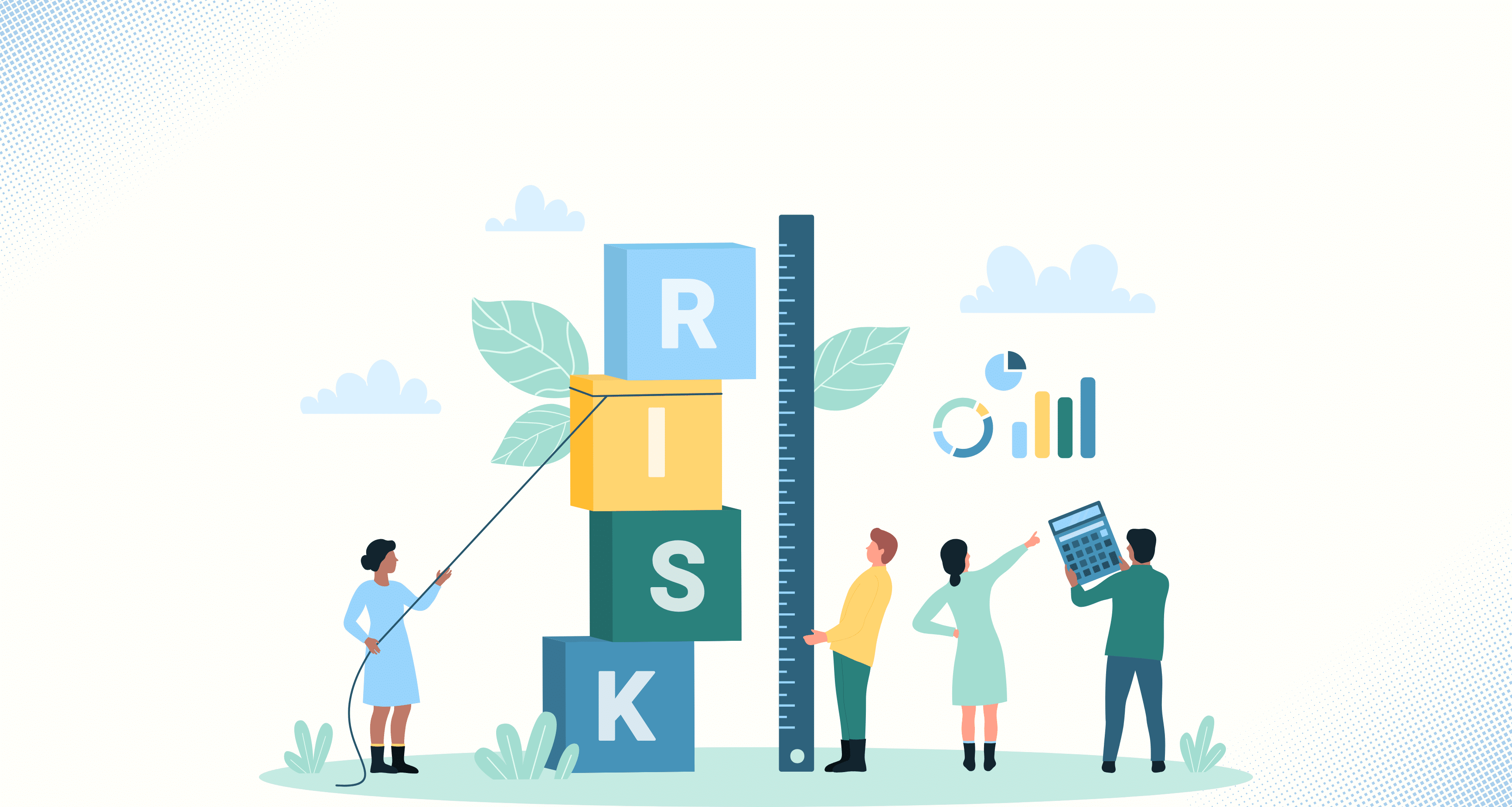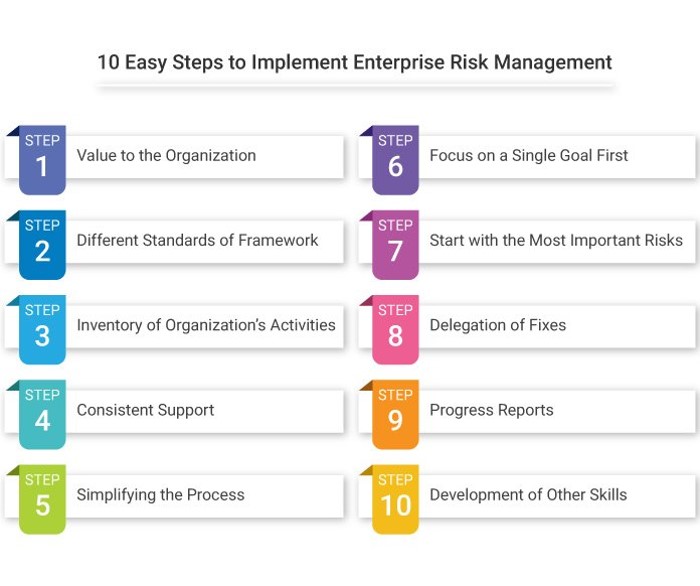Insider threats contribute to a well-rounded security enhancement plan
Discover the Role of AI in Encouraging Ethics and Honesty to Combat Expert Threats Effectively
The integration of AI in organizational structures has become critical in dealing with expert threats. By using advanced analytics and real-time tracking, AI systems can determine deviations from ethical actions among staff members (Insider threats). This aggressive technique not just improves compliance however additionally promotes an environment of count on. As business significantly count on these technologies, questions develop about their effectiveness and prospective implications for workplace culture. What exists ahead in the evolution of AI's role in advertising integrity?
Recognizing Insider Dangers and Their Influence On Organizations
Although organizations frequently concentrate on exterior threats, insider hazards position a substantial risk that can undermine security and stability. These threats emerge from individuals within the organization, such as professionals or employees, that may misuse their access to delicate information for personal gain or malicious intent. The impact of expert dangers can be serious, bring about monetary losses, reputational damage, and lawful implications.
Elements adding to insider risks consist of discontentment with the work environment, absence of oversight, and insufficient employee training on security procedures. Organizations typically battle to identify these dangers, as they can be challenging to find until significant damages has happened. Prevention methods should concentrate on promoting a culture of depend on and liability, along with executing durable tracking and reporting systems. By recognizing and attending to the complexities of expert dangers, companies can enhance their safety and security posture and secure their valuable assets from interior dangers.
The Advancement of AI in Office Security
As companies significantly confront varied safety challenges, the integration of expert system (AI) in workplace safety and security has actually progressed significantly. AI applications focused mostly on automating basic safety methods, such as access control and surveillance. Innovations in machine learning and information analytics have actually changed AI right into a positive tool qualified of recognizing possible risks and vulnerabilities in real-time.
Organizations now take advantage of AI-driven systems to examine huge quantities of information, enabling them to spot strange actions that may indicate expert threats. This evolution has actually brought about the advancement of innovative formulas that can gain from historic cases, enhancing the system's predictive capabilities. Furthermore, AI tools are increasingly utilized to simplify case action processes, allowing security teams to act promptly and properly.
Exactly How AI Monitors Employee Actions for Ethical Compliance
Synthetic intelligence plays a necessary role in checking staff member actions to ensure moral compliance within companies. AI systems evaluate vast quantities of data generated by staff members, consisting of communications, deals, and accessibility to delicate information. By employing sophisticated formulas, these systems can determine deviations from developed ethical requirements and firm plans.
Equipment knowing versions constantly adjust to identify patterns of habits that may show moral breaches, such as unapproved data gain access to or uncommon deal tasks. Insider threats. On top of that, AI-driven devices can supply real-time alerts to management, promoting prompt interventions when prospective threats are found
The assimilation of AI into conformity surveillance not just enhances the company's capacity to copyright integrity but likewise cultivates a society of liability amongst workers. By promoting transparency, AI systems work as a deterrent against underhanded behavior, making certain that staff members continue to be straightened with organizational worths and ethical requirements.
Evaluating Patterns: Determining Risky Habits With AI
An expanding number of companies are leveraging AI to assess patterns that might show risky habits amongst workers. By utilizing advanced formulas, these systems can sort via substantial quantities of data, determining abnormalities in individual habits that could suggest prospective insider hazards. AI can identify uncommon access patterns to sensitive information, such as staff members accessing data outside their usual extent of job or throughout atypical hours. In addition, behavioral analytics can highlight regular changes in a staff member's communication style or collaboration behaviors, which may indicate underlying concerns. This positive approach makes it possible for organizations to determine threat elements prior to they escalate right into considerable threats. As a result, the integration of AI right into checking practices not just enhances safety yet likewise cultivates a culture of liability and ethical actions. By determining these patterns, companies can better recognize the behavioral dynamics within their labor force, ultimately advertising a more secure and much more honest job atmosphere.
Real-Time Insights: Immediate Feedbacks to Potential Threats
Real-time understandings via predictive analytics and automated alert systems play an important duty in attending to possible dangers to ethics and stability. By leveraging these innovations, companies can prepare for dangerous habits and react without delay to mitigate dangers. This aggressive strategy boosts accountability and promotes a culture of stability in different atmospheres.
Predictive Analytics Applications

Automated Alert Systems
Anticipating analytics supplies a foundation for companies to improve their responsiveness to ethical concerns via automated alert systems. These systems utilize real-time information to keep an eye on tasks, discovering anomalies that might indicate prospective insider dangers. By leveraging artificial intelligence formulas, automated notifies can identify patterns of habits that deviate from developed norms, enabling quick intervention. This immediacy is necessary in mitigating dangers related to dishonest practices. Automated alert systems can streamline communication amongst relevant stakeholders, making sure that potential dangers are addressed immediately and effectively. As organizations significantly rely upon AI-driven options, the integration of automated alert systems will certainly play a pivotal function in cultivating a culture of principles and honesty, ultimately securing business assets.
Promoting a Society of Trust With AI-Driven Openness
AI-driven openness can significantly improve trust fund within organizations by advertising liability and open communication. With real-time tracking remedies, stakeholders can gain insights into processes and decision-making, promoting a society of honesty. Data-driven decision-making further supports this transparency, allowing notified options that straighten with ethical standards.
Enhancing Transparency and Liability
Exactly how can companies successfully foster a culture of trust? By improving openness and liability with the calculated usage of synthetic intelligence. AI can aid organizations methodically track decision-making processes, guaranteeing that actions straighten with recognized ethical standards. This transparency permits staff members to see the reasoning behind choices and plans, decreasing obscurity and cultivating a feeling of fairness. Furthermore, AI-driven tools can facilitate clear interaction relating to expectations and responsibilities, equipping individuals to take ownership of their activities. As responsibility ends up being ingrained in the business culture, employees are more most likely to participate in ethical actions, understanding their activities are checked and evaluated. Eventually, this method grows an atmosphere where count on can prosper, substantially alleviating the risk of expert risks.
Real-Time Monitoring Solutions
As companies significantly seek to cultivate a culture of trust, real-time tracking solutions become an link essential tool in improving transparency. These AI-driven systems constantly track tasks, supplying understandings into customer behavior and possible abnormalities that might indicate insider risks. By carrying out such tracking options, organizations can proactively determine threats, guaranteeing prompt responses to questionable activities. This not only safeguards delicate information yet additionally strengthens a dedication to ethical methods. Furthermore, the transparent nature of real-time tracking aids build worker self-confidence, as individuals understand that their activities are being observed for the greater good. Ultimately, these options offer to grow a workplace environment based in depend on, liability, and moral integrity, crucial for alleviating expert hazards effectively.

Data-Driven Decision Making
Real-time surveillance remedies lay the groundwork for data-driven decision making, which substantially boosts business openness. By leveraging AI modern technologies, organizations can evaluate large amounts of data to determine abnormalities and patterns a measure of possible expert hazards. This logical approach allows stakeholders to make enlightened decisions based in empirical evidence, cultivating a culture of trust among workers. Transparency in decision-making processes, bolstered by AI-driven understandings, encourages responsibility and honest behavior. In addition, it permits companies to proactively attend to vulnerabilities, ensuring that activities taken are warranted and interacted plainly. Therefore, the execution of data-driven methods not only reduces dangers related to expert dangers yet also enhances the worths of integrity and ethical conduct within the organizational framework.
Future Fads: The Role of AI in Enhancing Office Ethics
While companies significantly transform to expert system for operational effectiveness, the potential of AI to boost work environment values is obtaining prestige. Future trends show that AI will play an important role in creating ethical structures and guidelines, permitting companies to navigate complicated ethical issues. By examining large quantities of data, AI can determine patterns of unethical actions and offer understandings that promote openness and responsibility.
Moreover, AI-driven tools can promote real-time monitoring of staff member interactions, assuring adherence to ethical requirements. This positive technique not just mitigates insider risks but likewise grows a culture of honesty. As organizations embrace AI innovations, they should also focus on moral programs and mathematical prejudice decrease to assure justness.
In this advancing landscape, the integration of AI in ethical techniques stands for a transformative shift, cultivating a setting where stability is not just expected but methodically reinforced.
Regularly Asked Concerns
Just How Does AI Differentiate Between Benign and Malicious Actions?
AI distinguishes in between benign and harmful activities by examining patterns in user actions, employing maker knowing algorithms to recognize anomalies, and evaluating contextual information to figure out whether actions line up with established standards or show potential threats.
Can AI Equipment Replace Human Being Judgment in Moral Decision-Making?
AI devices can not totally replace human judgment in moral decision-making. While they can assess data and determine patterns, the nuanced understanding of context, values, and ethical implications still needs human insight and discernment.
What Are the Personal Privacy Effects of AI Monitoring Employee Actions?

Exactly How Can Organizations Ensure AI Algorithms Are Morally Created?
Organizations can assure AI formulas are morally made by carrying out transparent advancement procedures, including varied stakeholders, conducting normal audits, and adhering to established moral structures that prioritize justness, accountability, and regard for individual privacy and legal rights.
What Training Is Needed for Staff to Understand Ai's Moral Role?
Staff training must encompass fundamental AI ethics, information privacy, and prejudice awareness. Workshops, case studies, and interactive sessions can enhance understanding, making certain staff members acknowledge AI's moral effects and its duty in promoting honesty within the company.
Synthetic intelligence plays a vital duty in monitoring worker actions to assure honest conformity within organizations. The combination of AI right into checking techniques not only boosts safety and security but additionally fosters a society of liability and honest habits. While organizations progressively deal with moral issues and prospective honesty violations, anticipating analytics applications provide prompt insights that can assist minimize these dangers. Predictive analytics gives a structure for organizations to boost their responsiveness to honest problems through automated sharp systems. Future trends show that AI will play an important role in establishing moral frameworks and standards, enabling organizations to navigate intricate moral dilemmas.